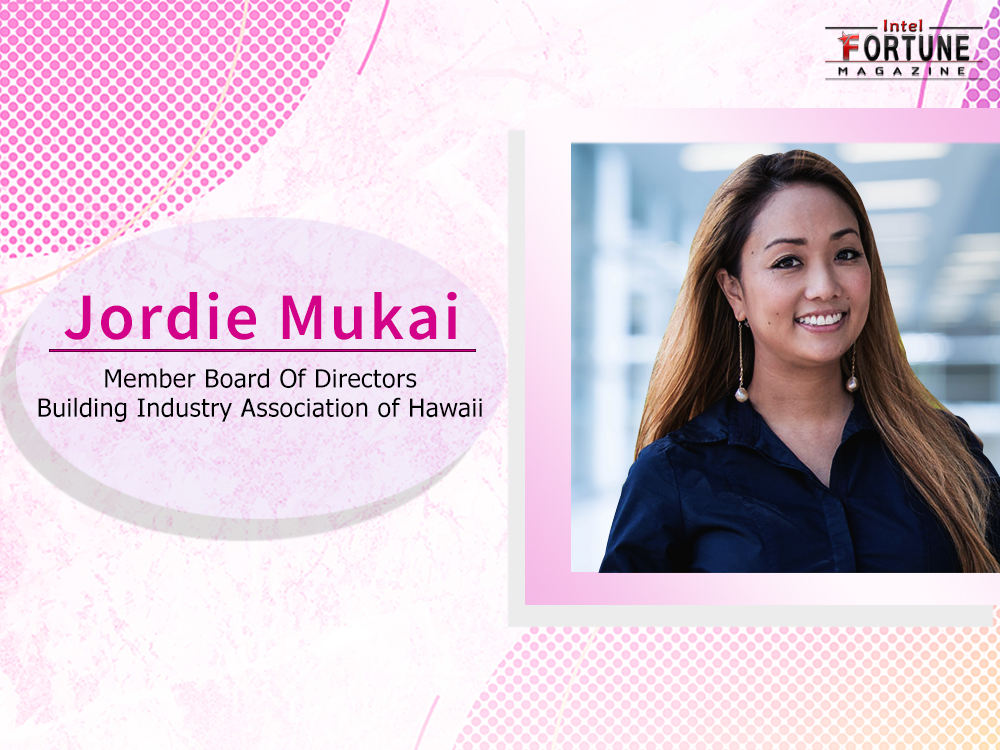Jordie Mukai is able to count the number of other women she has met in the male-dominated construction industry who share her position. Mukai is aware that she is subject to age- and gender-based stereotypes as a young project manager for SAH Inc., a general construction company based in Honolulu. Nevertheless, she shrugs off any challenges with the assurance that she is working in her favorite field.
Mukai, who is 27 years old, states, “I like what I do.” I enjoy taking something and making it into what the customer wants and needs. Seeing the process from beginning to end, being a part of every step.”
Mukai successfully completed STEM-heavy architecture and civil engineering coursework at the University of Hawai’i at Manoa and earned her degree in 2012. She wanted to be an architect, but she realized she didn’t like the abstract nature of architecture. Instead, she went into civil engineering, which got her into construction management.
She joined SAH in April 2015 after spending several years at Swanson Steel in Honolulu. Mukai faced the challenge head-on, feeling like she had finally found her place in the industry, despite the steep learning curve that came with moving from a large company that only dealt with steel.
As a project manager, Mukai approaches her work as if she were directing a movie. The director must be able to see the big picture despite the numerous roles and responsibilities. Mukai coordinates subcontractors, ensures that the client’s requirements are met, manages leases and permits, and ensures that a project runs smoothly. She enjoys those challenges and believes that when she faces obstacles, she produces her best work. Mukai recalls her training at SAH, saying, “I had so much to observe, and I had to learn quickly.” It was hard, but I saw it as a positive thing because they were giving me so many chances to learn about so many things. I had to put what I had learned to use.
As a young woman working in a male-dominated construction industry, Mukai’s youth and gender are sometimes questioned or attacked openly. She knows that some men aren’t used to being told what to do by a woman, and some men push back just to see how she will react. She could just sit back and complain about the hard things she has to do, but instead she focuses on the good things, like how she stands out as a project manager. She encourages her coworkers, acknowledges their abilities, and provides as much information as she can as a leader. She communicates clearly that she values everyone on the site. She is also able to create comprehensive plans for a client due to her background in architecture, something that not all project managers are capable of.
Mukai is aware that, in the end, she will be judged on the merits of her team’s work rather than her gender. Mukai asserts, “I feel like that will get you anywhere if you have a positive attitude about things, smile, and you are confident enough.”
Mukai now speaks with the confidence of a seasoned veteran and her successes. She manages up to nine projects at a time at SAH, which was founded in 2010 by Ashlee Matsui and Shelton Higa and focuses on commercial projects. She is currently in charge of the Atlas Building renovation on South King Street, which occupies 70,000 square feet.
According to Mukai, “being a part of the construction allows me to help shape and be a part of our community.” Mukai is aware that she is still at the beginning of a never-ending learning curve, despite the fact that she has come a long way during her two years at SAH and feels much more at ease working as a project manager. Knowing that she will need to adapt as the industry, jobs, and expectations shift, she emphasizes the importance of evolving.
Mukai asserts, “My grandpa always told me that knowledge is power.” You can be young, your appearance will change, and everything will change, but your knowledge will stay. That is what you are worth. If you don’t keep learning, you won’t be able to keep up with the times or become the best version of yourself.











